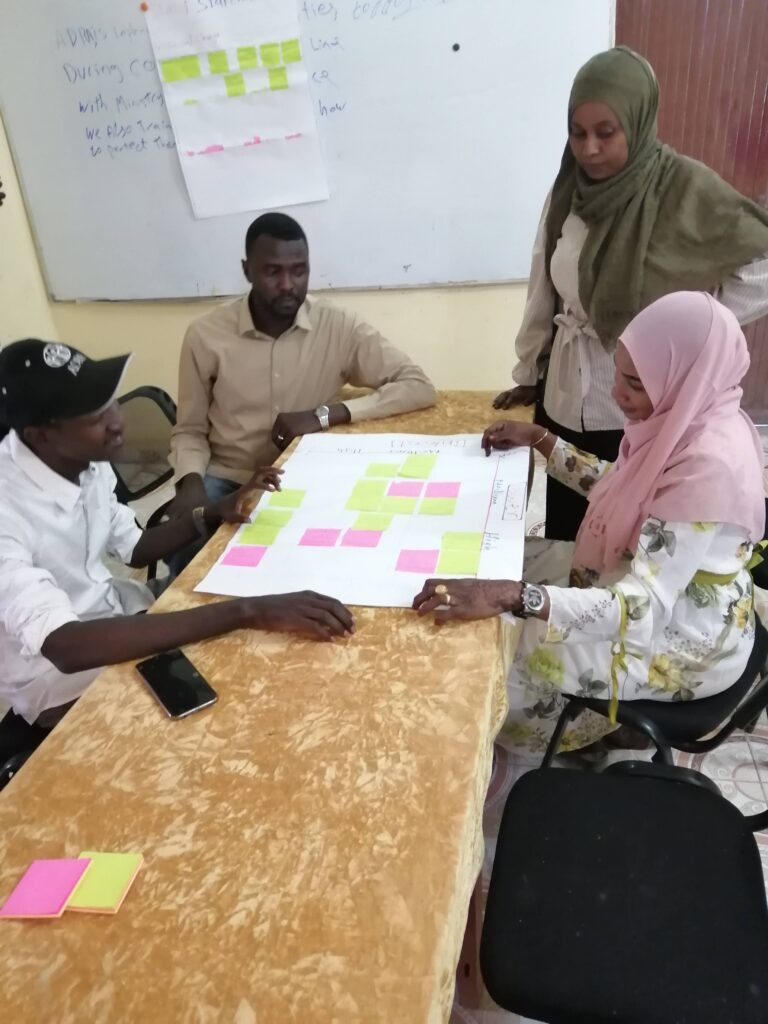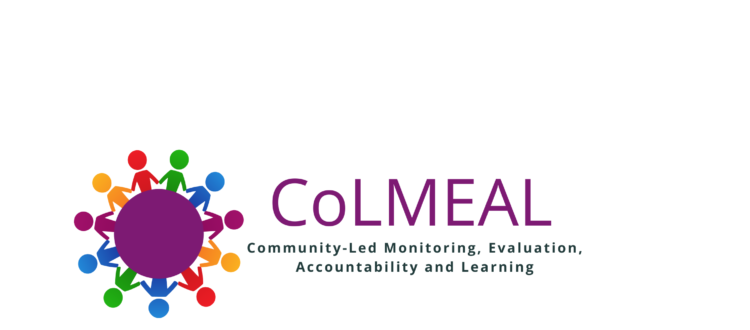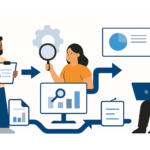CoLMEAL: Getting your organization and colleagues on board

Last month we hosted a Webinar with ADRA Canada on “What is CoLMEAL?” We had a lot of engaged participants who asked some important questions about the practicality of implementing CoLMEAL in their projects.
Today we are highlighting one of these questions:
What would be your best advice to get my organization and colleagues on board with CoLMEAL?
This can be challenging since CoLMEAL is an added element to existing reporting requirements. This can feel like added workload to an already overflowing plate.
Ideally it begins with strategy and strategic leadership. CoLMEAL is best implemented when there is already an organizational commitment to Community-Led Development more generally. We would hazard to say that ColMEAL will not work in its absence. Changing the mindset and organizational processes and culture begins with leadership. This is why as a first step, we assess an organization’s readiness to implement CoLMEAL. (This is the focus for our next webinar, register here). CoLMEAL is about relationship building. When this is the focus of your organization’s approach, CoLMEAL is a natural next step.
Our partners have also highlighted practical steps they have taken to integrate CoLMEAL into their projects:
- Carve out funding for a fully dedicated staff – This person should be solely dedicated to CoLMEAL and not involved in regular M&E activities. With government funded projects, there can be demanding reporting requirements that do not always align with the CoLMEAL approach. Having a dedicated staff member allows the CoLMEAL officer to spend the needed time and energy dedicated to CoLMEAL activities.
- Manage the balance of donor and community timelines – CoLMEAL functions best if there is time in the project schedule to allow what needs to happen at the pace of the community. It requires donor and project staff to step out of the usual “we need to do this” mindset and let the pace of the community dictate how it will be done. This may require negotiating with the donor on what targets can be and when they will be delivered. It takes some skill to facilitate in a way that respects the timeline of the community, while complementing with the organization’s added value to expedite the processes already existing in community structures.
- Carve out resources to fund community actions – In any context, there can be issues the community can solve vs issues that require external assistance. It is important to be able to design projects so that it supports solutions that are not just prescribed from the organization or donor’s perspective, but for community plans that address issues that are being prioritized by the community. Including community action grants to encourage community plans developed through CoLMEAL is essential so they have the resources and facility to make their plans happen.
Sign up for the free “Is your organization ready for CoLMEAL?” webinar April 7 at 9am EST.

Want to learn more? Stay-tuned for our next post “Is your organization ready for CoLMEAL?”. Join our mailing list below or follow us on LinkedIn so you don’t miss the next update!
If you have any questions about CoLMEAL leave them at the bottom of this post, or join our discussion on LinkedIn!
Read the full CoLMEAL article series
- CoLMEAL: What is it and should you use it
- Why CoLMEAL can help development
- The Benefits and Challenges of CoLMEAL
- Is your organization ready for CoLMEAL? (coming soon!)




